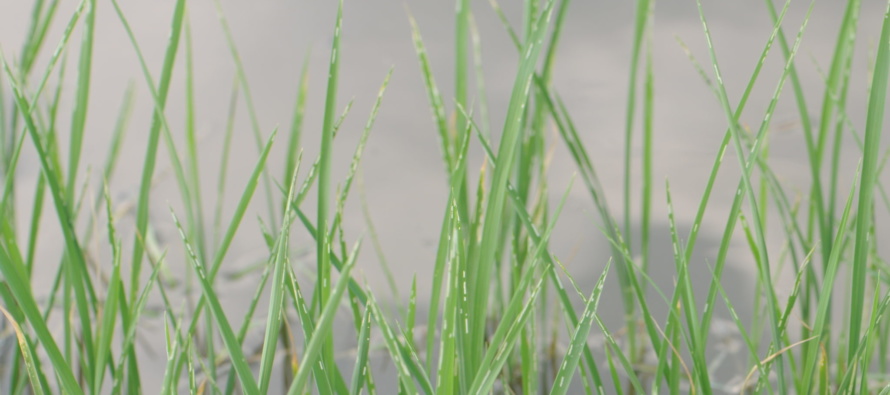Considerations for Rice Water Weevil Management in 2017

Related Articles
- Rice Variety Trial Results For 2010, Plus Rice Research Report 0
- Rice Seeding Rate Calculator and Chart 0
- Mississippi Cotton Insect Situation of 2010: A Look Back 3
Latest Tweets
We have been getting several calls about adult rice water weevil adults and adult feeding in rice that has gone to flood. In fact, it appears that we are experiencing higher than normal populations this year in many areas of the Delta. There are several things to consider as more acres go to flood.
Flood timing has been significantly delayed for a lot of fields because excessive rainfall has prevented getting levees pulled. Because rice water weevil is highly dependent on the presence of a flood to lay eggs, the delayed flood is going to impact their management.
There are two important considerations in this situation. First, if an insecticide seed treatment was used, the time from planting until flood is going to have an impact on their performance. Second, older rice is much less susceptible to yield losses from rice water weevil.
We had a graduate student, Dr. Andrew Adams, a few years ago that looked at the impact of flood timing on rice water weevil management with seed treatments. In general, the seed treatments reduced larval numbers even when the flood was not established until 8 weeks after planting. However, control was less consistent than earlier flood timings. His research also showed that excessive water can have an even greater impact of the performance of seed treatments, especially the neonicotinoids Cruiser and Nipsit.
The bottom line of Andrews research is that fields that have received excessive amounts of rainfall and prevented a timely flood will need to be scouted for weevils and populations will need to managed accordingly. In terms of management, the only viable option at this point is a supplemental spray with a foliar insecticide.
In terms of what to spray, there are really two options available, a pyrethroid or Belay. In general, pyrethroids are less expensive, but provide very little residual control. In contrast, Belay is a little more expensive, but provides better residual control. Timing with a foliar spray is critical, so the added residual with Belay may be worth a little extra cost in some situations. Regardless of what is used, the spray needs to be made when weevils are in the field, but before they lay eggs to provide the best control.
 I have been asked about mixing something in with the pre-flood herbicide application. We understand the desire to try to eliminate an application, but as mentioned above, timing is critical for rice water weevil management. Unfortunately, the timings don’t line up very well for weevil management and the short residual with pyrethroids make them a bad choice. If you decide to make a pre-flood application mixed with the herbicide, Belay would be a much better option because of the added residual control (although it is not a big difference in residual).
I have been asked about mixing something in with the pre-flood herbicide application. We understand the desire to try to eliminate an application, but as mentioned above, timing is critical for rice water weevil management. Unfortunately, the timings don’t line up very well for weevil management and the short residual with pyrethroids make them a bad choice. If you decide to make a pre-flood application mixed with the herbicide, Belay would be a much better option because of the added residual control (although it is not a big difference in residual).
Another thing to consider, is that the later a flood is established and the bigger rice plants are when the field is flooded, the less impact rice water weevil have on yields. In general, 1 maggot per core will result in a 1 bushel per acre yield loss. These values are based on research where the flood was applied on time (about 3-5 weeks after planting). On bigger rice, weevils will have much less of an impact except at high populations.
Our general recommendation is to scout fields closely for the presence of scarring and presence of adult weevils. At this time, the best estimate we have in terms of when to make a spray is based on some information from Dr. Gus Lorenz at the University of Arkansas. He recommends spraying when 50% of plants have adult feeding scars. In terms of the pre-flood application of Belay, the higher cost makes this a risky decision. In general, scouting and making a good timely application with a pyrethroid is going to result in a similar cost even with the added application cost, and may provide better control.




Let me tell You a sad story ! There are no comments yet, but You can be first one to comment this article.
Write a comment